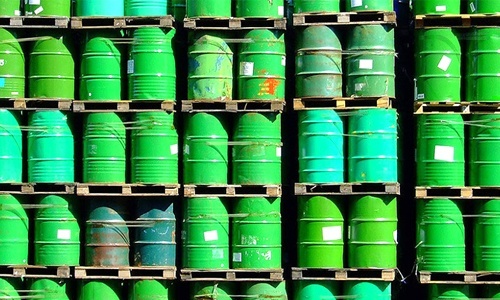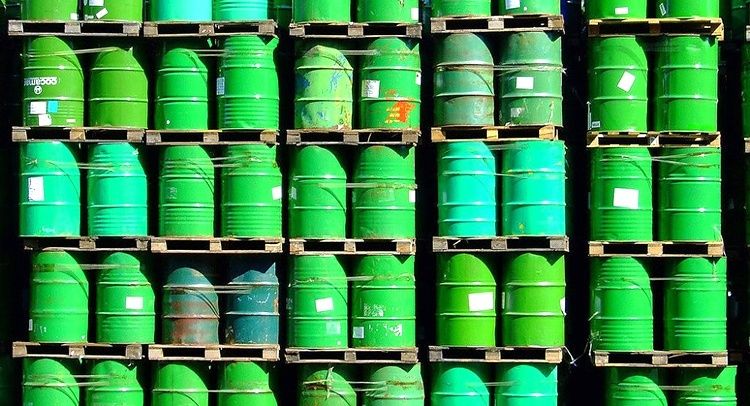
12 Experts Comment: What Oil Below $30 Means for Efforts to Tackle Climate Change

The oil price slide below $30 a barrel is reverberating through the global economy. With sanctions against Iran being lifted, prices face further downwards pressure.
The new lows come after prices spent much of the past year around the $50 mark, as Saudi Arabia’s attempts to win back market share from U.S. shale firms produced limited results.
There are recessions in Russia and Brazil. Saudi Arabia is burning through its reserves, its stock markets are in freefall and its population is feeling the squeeze, as it looks for new sources of cash.
Fossil fuel subsidies are being cut, from Saudi Arabia to India and Bahrain. The UAE is looking towards a life beyond oil. Oil majors are facing hard times, too, with BP set to axe 4,000 jobs as the total of shelved oil investments breaches $400bn since the price slump began in late 2014.
For all that, some papers have found reason for optimism.
An editorial in The Times says cheap oil is “bolstering Britain’s recovery.” The Financial Times says cheaper oil “may not be good for the prospects of reducing carbon emissions in the near term, but it is certainly of significant net benefit for the global economy and employment.”
With some predicting oil could fall as low as $10, an article in the Guardian looks at the tax, consumer and jobs effects for the UK.
From a global perspective, cheap oil might raise demand as well as putting pressure on oil producers. If oil remains cheap, the incentive to keep burning it could be stronger.
So, what does $30 oil mean for efforts to tackle climate change in the wake of the Paris agreement signed in December? Carbon Brief asked a range of experts for their views.
Nick Butler, Financial Times commentator on energy and power and chair, King’s Policy Institute, King’s College London
“$30 oil changes very little. The political will to act [on climate change] will be confirmed (or set back) by the outcome of the U.S. presidential election, which is the most important event of the year for the climate agenda.
“The actual response to the climate issue will come from science and technology and progress across a range of possibilities from solar to storage continues and looks encouraging. A fall in oil prices—temporary or more permanent has very little impact on that.”
Abyd Karmali, managing director, climate finance, Bank of America Merrill Lynch
“Low oil prices create broader macro-economic uncertainty that may distract some oil-revenue reliant governments from the commitments they have made in their INDCs [intended nationally determined contributions to the Paris climate deal]. In general, however, low oil prices provides governments that are heavy subsidizers of fossil fuels an excellent opportunity to rein in those subsidies and this should accelerate the transition to a low-carbon economy.
“One key negative impact might be a slowing in the penetration of electric and hybrid vehicles. For example, in the US., there is already a slow down but this has not been seen in other automobile markets where fuel taxation is more material. As the price and range of new electric vehicles continues to become more favorable relative to petrol-based cars, the adoption of electric vehicles will continue to dampen demand for oil despite low oil prices.
“In terms of other market impacts, continued oil price volatility could remain a factor influencing solar stock valuations. There is, however, no fundamental connection between the price of oil and solar market fundamentals in most regions and so savvy investors may also look at this as an opportunity to enter the market for stocks that are weighted towards climate solutions.”
Tom Burke, chairman, E3G
“Oil resources deplete at about 10 percent/year which means that to maintain its reserve ratios the oil industry has to find and bring into production 10 percent/year of new resources. The $30/bbl. has cut just under $400bn from future investment and there is more to come. This is going to make replacement difficult.
“Prices will bottom at some point and then begin to recover but investment might not as in the meantime investment in efficiency and renewables and social change, continue to undermine growth projections. Furthermore, I suspect it will turn out that a lot of oil assets were over-valued and many investors and bankers will have been burnt by the price collapse.
“The world is likely to continue to become more turbulent. This will lower the appetite of investors for high risk, high capital projects with a long lead time to revenues flowing. This appetite will be further lowered if, as seems to me likely if prices do not rise rather rapidly, the oil companies have to cut their dividends. Since investors have to invest in something I suspect we will continue to see rising investment in renewables as a safer bet.
“In other words we could be seeing the top of a death spiral for the international oil companies.”
Peter Kiernan, lead analyst, energy, Economist Intelligence Unit
“Low oil prices are unlikely to have a sustained impact on global efforts to tackle climate change. The cost of renewables is also falling and policy drivers to lower the carbon intensity of power generation in the U.S., EU, China and elsewhere are still in place.
“Oil is also not a direct competitor to renewables, although prices for gas and coal, which are direct competitors, have plunged too. Nevertheless, last year global emissions stalled (as in 2014) and clean energy investment reached a new high: despite the fall in oil prices since mid-2014. Low oil prices are not good for electric vehicle sales or biofuels, but the transition towards lower carbon energy systems overall will survive the oil price plunge.”

 233k
233k  41k
41k  Subscribe
Subscribe 
